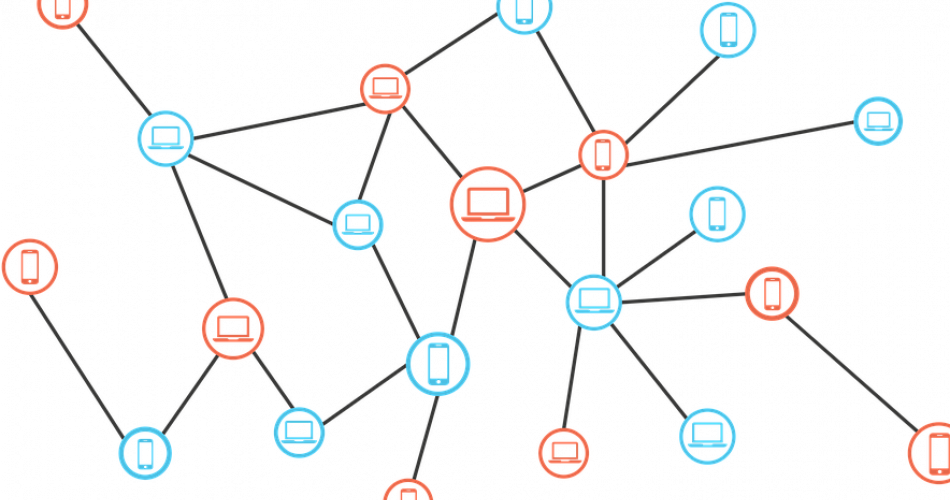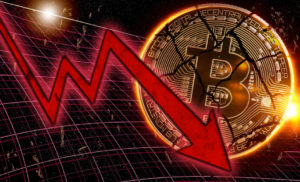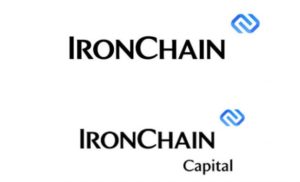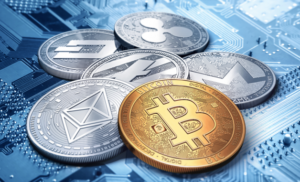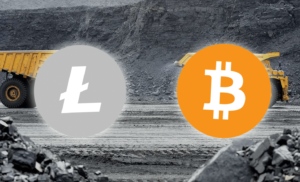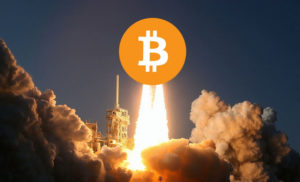In our quest to escape from existing corrupt centralized systems, we may believe that it’s possible to achieve complete decentralization. However, recent academic research shows that this is unfeasible — at least sustainably.
For example, Bitcoin’s Proof-of-Work (PoW) mechanism relies on many different nodes to “mine,” or verify and facilitate transactions. These miners are rewarded a portion of transaction fees and a shot at winning the Bitcoin block reward, which is currently 12.5 bitcoins or about $115,000– a not insignificant prize dished out about 144 times per day.
This has incentivized the creation of “mining pools,” or a collection of nodes that work together and divide the prize among the operators. Mining pools have taken what would otherwise be a decentralized utopia and coalesced a degree of centralization. The current state of Bitcoin mining is far from a single entity controlling the network with a 51% lion’s share, but it still highlights the downfalls of decentralization.
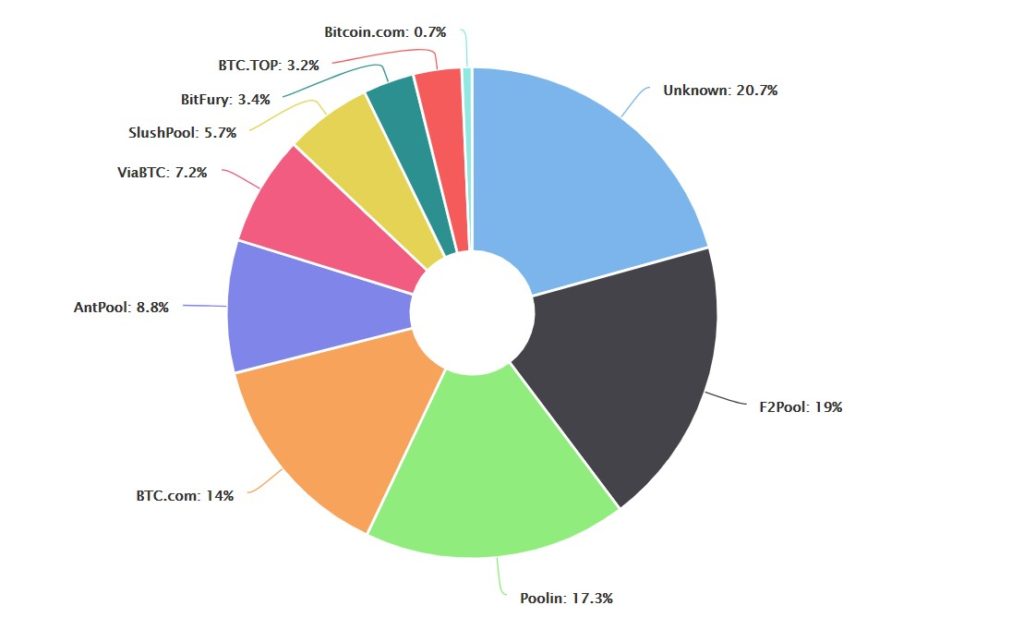 Image via blockchain.com
Image via blockchain.com
There are cryptocurrencies that utilize different consensus mechanisms such as Proof-of-Stake and Delegated-Proof-of-Stake, and they manage to address some of Bitcoin’s drawbacks (such as high energy costs to mine), but they still leave the glaring decentralization issue.
A particularly noteworthy concept is that Bitcoin, a network with no single individual party dictating its future, has gravitated towards centralization on its own. Centralized entities may receive some flak in the cryptocurrency and blockchain community, but they are at least able to enforce and control certain elements, a task nearly impossible for a theoretical, fully decentralized entity.
Do we really need full decentralization?
The core tenet of decentralization, at least among the common blockchain ethos, is that decentralization insulates the network from tyranny and corruption, a duo that has plagued human governance and economics since the dawn of organized civilization.
The same concepts that power Adam Smith’s “free market” philosophy that underpins modern economics encourage decentralization as long as every party is properly incentivized (mining rewards) and has access to somewhat similar resources (electricity, reasonable utility costs, etc) as the next.
The glory of today’s blockchains isn’t so much derived from the idea of a utopian decentralization, but more so as a rebellion against the status quo of centralized banks dictating the economy, individuals being tethered to the success of their government, and the ability for large tech corporations and banks to shut down financial accounts at will.
There are several degrees of “decentralization”, and even though not “perfect,” even smaller decentralization improvements can be disruptive to the existing “centralized” status quo.
The goal is to figure out which areas will be impacted first; and which are the top use cases given the infrastructure’s properties (security, decentralization, scalability).
For example, think of the idea of a decentralized “Uber,” a popular thought experiment in the blockchain entrepreneurial community. When someone needs a car to pick them up, what would they prefer: a nearly immediate connection to a driver courtesy of an efficient centralized server, or waiting for minutes and potentially hours for the transaction to be verified and processed?
Final Thoughts
Although the push towards absolute decentralization is unfeasible, and in reality, decentralization benefits vary across use cases. Simply put, we don’t need decentralization for everything– centralization tends to work just fine for most things, and it shouldn’t be viewed as an enemy of what the blockchain movement seeks to accomplish.
Ultimately, blockchain is simply just another technology to be leveraged to solve certain problems.
Once upon a time, centralization was the solution to the disorganized chaos of the unpredictable. Our ancestors who lived in groups tended to live longer and better lives than individuals not in groups.
These groups evolved into tribes that utilizes some form of centralization (leadership, hierarchy, enforced order) that protected its members and utilized resources more efficiently. Eventually, tribes expanded and, however indirectly, ended up becoming countries that function using the same centralized mechanics.
Decentralization uses the evolution of the Internet and technological infrastructure to create systems that don’t require a centralized entity’s direct oversight. However, decentralized entities can only function within the scope of a centralized society.
Today’s projects are able to enjoy both the benefits of existing within the confines of a centralized society and the possibilities enabled by blockchain and the Internet. While full decentralization might be impossible, there’s no reason to fuss.
This article is originally posted on Albaron Ventures: https://albaronventures.com/exploring-the-impossibility-of-decentralization/
Maybe you already know you can do it in our channel. Telegram to share operations with other users:
Subscribe to the channel to find out all the latest news!
https://t.me/Guadagnare_sul_Forex
It is important, in the group to interact with all investors to earn on Forex and know the investment strategies.
See you soon and good trading!
Earn on Forex

